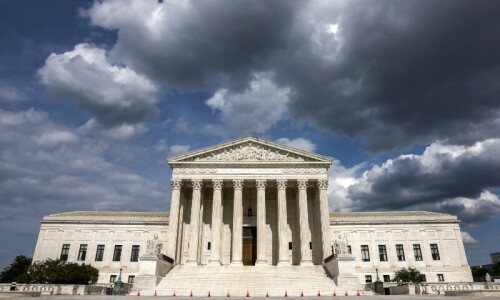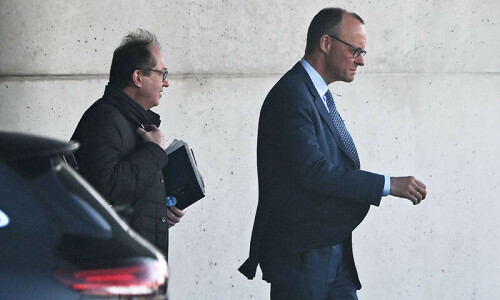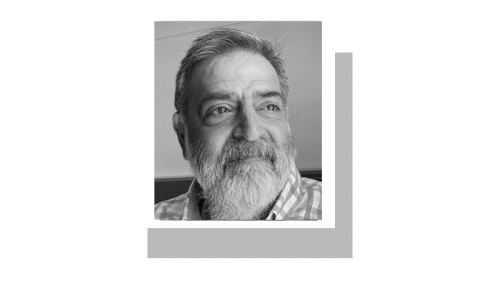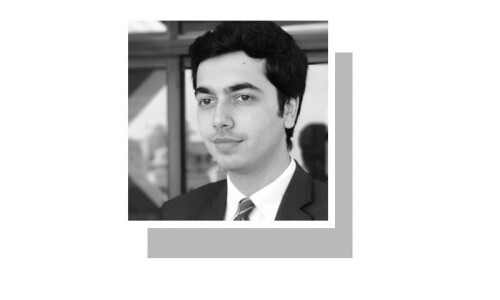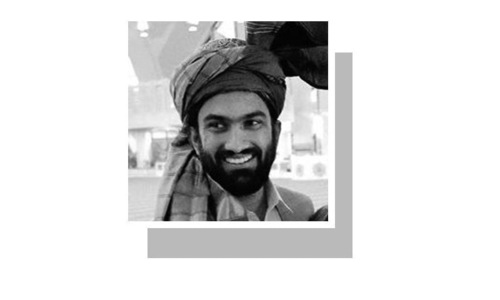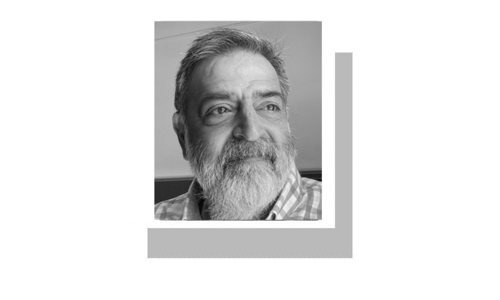SC makes history by hearing case at Karachi registry via e-Court system

The Supreme Court (SC) on Monday, for the first time in the judicial history of Pakistan, began hearing cases via e-Court — a system based on video-link connectivity, the apex court announced in a press release.
"Today, a three-member bench headed by Chief Justice Asif Saeed Khosa and comprising Justice Sardar Tariq Masood and Justice Mazhar Alam Khan Miankhel formally initiated the proceedings of cases through the e-Court system at principal seat Islamabad and the SC Karachi registry," read the press release.
Editorial: An inhumane justice system
"The advocates of Karachi, whose cases were fixed for hearing at the SC Karachi registry, argued their cases through a video-link and the bench at principal seat heard and decided the cases."
The chief justice, while hearing the first case through the technology, remarked that a big milestone had been achieved in the judicial history of Pakistan.
"The facility will benefit lawyers and litigants to save them time and money," the apex court said.
Jurists are of the view that by enhancing access to the apex court’s principal seat, the e-Court facility will discourage adjournments and encourage the legal fraternity to plead their cases without delays.
It will also provide convenience to lawyers as they will be able to pursue their cases while remaining in the cities where the court’s branch registries are situated. It will also benefit the litigants as they will not have to travel all the way to Islamabad to take part in court proceedings.
This, in turn, will help improve disposal of cases and reduce the backlog. The system will be cost-effective and improve accessibility, the jurists said.
Chief Justice Khosa, at his swearing-in ceremony in January, introduced the agenda for his tenure: "To attend to the causes that contribute towards delay in disposition of cases at all levels of the judicial hierarchy."
Read more: Complete text of address by Justice Asif Saeed Khosa at full court reference for CJP Nisar
During his speech, he had stressed upon the need to make "structural and systemic changes so as to minimise litigation, eliminate unnecessary delays and rationalise the workload", and redesigning and restructuring of the judicial system as a whole.
He has on multiple occasions called for discouraging frequent adjournments and frivolous litigation, and disposing off pending cases in a timely manner.
















